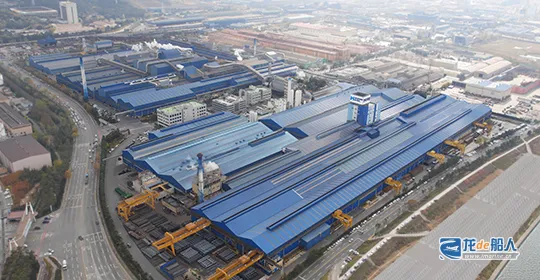A recent report has attracted widespread attention from South Korean shipbuilding and steel companies: the South Korean government plans to impose additional tariffs on steel plates from China.

Data released by the World Steel Association (WSA) on the 3rd showed that global crude steel production reached 150 million tons in November last year, an increase of 0.8% over the same period last year, but a decrease of 3.5% month-on-month, and the cumulative production as of November also fell by 1.4% compared with the same period last year.
South Korean steel companies rely on imports from Australia, Brazil and other countries for most of their raw materials. Factors such as the sharp rise in the U.S. dollar exchange rate and competition from Chinese steel have intensified the pressure on South Korean steel companies. These steel companies are through cost cutting (including layoffs), production restructuring to protect profitability.
It is understood that the price of Chinese steel plates is about 100,000 to 200,000 won (500 to 1,000 yuan) lower per ton than that of Korean steel plates, which makes Korean shipbuilders tend to purchase Chinese steel plates for cost and profitability considerations, thereby increasing the operating pressure of Korean steel companies. In fact, some production facilities of Korean steel companies such as Posco and Hyundai Steel have been closed, and the factory renovation and maintenance cycle has also been extended.
South Korea’s steel imports from China totaled 7.355 million tons from January to October last year, up 37.3 percent from 2022, according to the data. According to Korean media reports, “in view of the unfair competitive situation in the domestic steel industry caused by low-cost plates from China, tMinistry of Trade, Industry and Energy of South Korea (MOTIE) is mulling imposing temporary tariffs on plates from China”. This trade protectionism has been glorified by the Korean media as “protecting the domestic steel industry and creating a fair trade environment”.
The South Korean government’s consideration of temporary tariffs on Chinese steel plates has been welcomed by Korean steel companies. But on the other hand, steel plate is a key raw material for shipbuilding. Raising tariffs to protect domestic steel companies will naturally affect the profitability of Korean shipbuilders by increasing the price of steel plates.
The shipbuilding industry has entered a boom period in the last two years after a long recession. The profitability of Korea’s large shipbuilders continues to improve and is expected to continue its growth momentum in FY2025.
In 2023, HD Hyundai and Samsung Heavy Industries succeeded in turning their annual losses into profits, and have steadily increased their profits in all quarters since then. Hanwha Ocean is also gradually getting rid of the vicious inventory backlog and is about to get rid of its loss-making situation.
South Korea’s major shipbuilders such as HD Hyundai, Hanwha Ocean and Samsung Heavy Industries, have held the order book for three to four years, coupled with the continuation of the strong trend of the U.S. dollar, earnings growth is expected to be optimistic.
Using cheaper Chinese steel can effectively reduce costs, and Korean shipybuilders are purchasing Chinese steel plates on the rise. The Korean government’s tariff plan is causing anxiety among Korean shipbuilders. The Korean shipbuilding industry believes that the increase in steel prices caused by tariffs will inevitably increase the cost burden of shipyards, thereby weakening the competitiveness of global orders.


